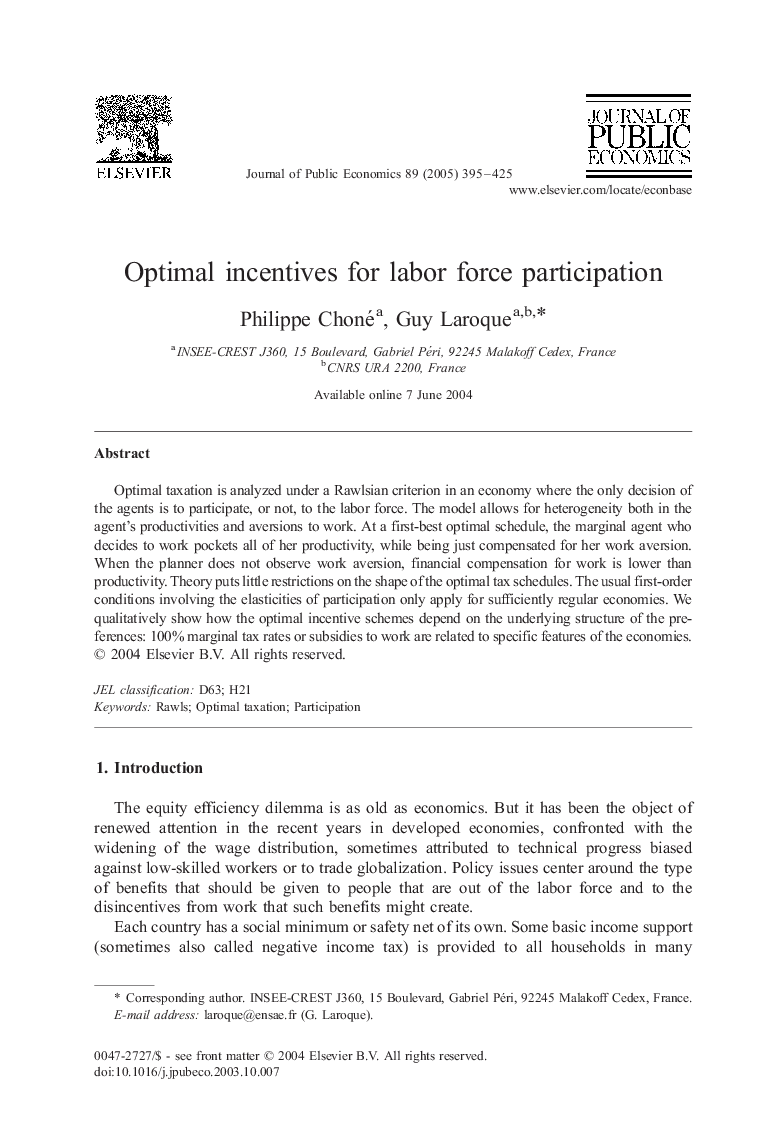| Article ID | Journal | Published Year | Pages | File Type |
|---|---|---|---|---|
| 9726881 | Journal of Public Economics | 2005 | 31 Pages |
Abstract
Optimal taxation is analyzed under a Rawlsian criterion in an economy where the only decision of the agents is to participate, or not, to the labor force. The model allows for heterogeneity both in the agent's productivities and aversions to work. At a first-best optimal schedule, the marginal agent who decides to work pockets all of her productivity, while being just compensated for her work aversion. When the planner does not observe work aversion, financial compensation for work is lower than productivity. Theory puts little restrictions on the shape of the optimal tax schedules. The usual first-order conditions involving the elasticities of participation only apply for sufficiently regular economies. We qualitatively show how the optimal incentive schemes depend on the underlying structure of the preferences: 100% marginal tax rates or subsidies to work are related to specific features of the economies.
Related Topics
Social Sciences and Humanities
Economics, Econometrics and Finance
Economics and Econometrics
Authors
Philippe Choné, Guy Laroque,
